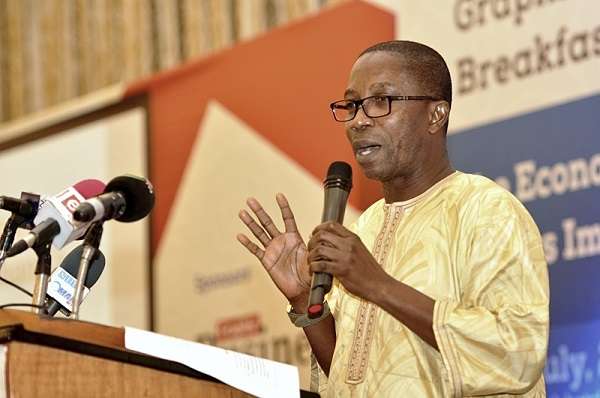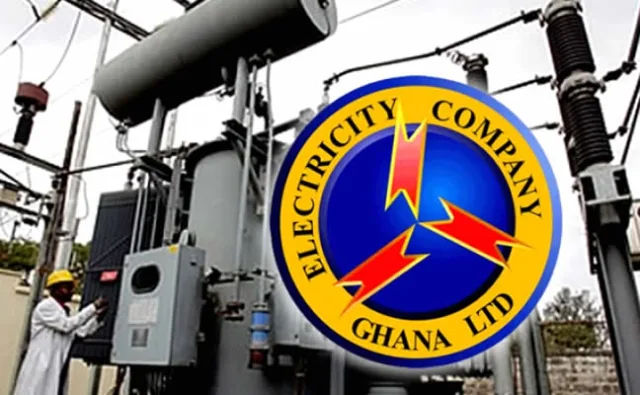Dr. Yao Graham, Coordinator of Third World Network-Africa, has drawn attention to the systemic issues affecting the Electricity Company of Ghana (ECG), linking its challenges to broader economic mismanagement and structural inefficiencies within Ghana’s energy sector.
His comments come in the wake of President John Dramani Mahama’s renewed push for privatizing power distribution to improve efficiency in the sector.
Dr. Graham’s analysis sheds light on key factors behind ECG’s financial woes, including the mismatch between electricity tariffs and Ghana’s depreciating currency, the unfavorable terms of contracts with Independent Power Producers (IPPs), and the failure of successive governments to settle public sector electricity debts.
“In recent times, the terms of agreements with IPPs have also become a factor in ECG’s problems,” Dr. Graham explained.
“With the collapse of the exchange rate, ECG pays the IPPs from its revenues collected in cedis, which must then be converted to dollars.
“If they used to spend GHC7 on a dollar, they are now spending GHC15—it’s double.”
Dr. Yao Graham, Coordinator of Third World Network-Africa
The steep depreciation of the cedi has widened the gap between electricity tariffs and the cost of power generation, compounding ECG’s financial difficulties.
“Tariffs have not kept pace with the collapse of the exchange rate. Part of the economic problems of ECG has to do with the mismanagement of the economy and its long-term consequences.”
Dr. Yao Graham, Coordinator of Third World Network-Africa
Dr. Graham criticized the agreements signed with IPPs, describing them as unfavorable to the state and a contributing factor to ECG’s struggles.
“Successive governments have signed agreements with IPPs that have not been advantageous for this country.
“These contracts often include expensive take-or-pay clauses, which require the government to pay for power even when it is not utilized. This creates a financial burden that exacerbates ECG’s challenges.”
Dr. Yao Graham, Coordinator of Third World Network-Africa
The rising costs of power purchase agreements (PPAs) and unfavorable contract terms have placed additional pressure on ECG’s already strained finances, leading to inefficiencies in its operations.
Public Sector Debt and ECG’s Operational Constraints

Dr. Graham also highlighted the failure of successive governments to settle electricity bills for public institutions, which has significantly eroded ECG’s financial capacity.
“The primary reason for the state of ECG is the cumulation of different political decisions and activities.
“Successive governments and public institutions do not pay ECG what is owed, so public debts over time have eroded ECG’s capacities.”
Dr. Yao Graham, Coordinator of Third World Network-Africa
He questioned how ECG could effectively carry out critical functions such as equipment maintenance and service expansion when it is consistently deprived of income owed by the government.
“If the public sector had been paying for electricity consumption over time, a major contributor to ECG’s economic problems would not exist,” he added.
President Mahama’s push for privatization of ECG’s power distribution services has sparked debate about whether such a move would address the root causes of the company’s inefficiencies.
Dr. Graham, however, questioned whether privatization is the right solution. He argued that privatization alone would not address systemic issues such as currency depreciation, unfavorable IPP contracts, and unpaid public sector debts.
“Privatization may help improve certain operational efficiencies, but it cannot fix the broader issues of economic mismanagement and poor governance in the energy sector.”
Dr. Yao Graham, Coordinator of Third World Network-Africa
The challenges facing ECG are emblematic of deeper structural and economic issues in Ghana’s energy sector.
Dr. Yao Graham’s analysis highlights the need for systemic reforms that go beyond privatization to address the root causes of inefficiency, financial mismanagement, and revenue shortfalls.
As Ghana seeks to stabilize its energy sector, a holistic approach that combines policy reform, financial discipline, and transparent governance will be essential.
Only through such measures can the country ensure reliable and affordable electricity for its citizens while securing the financial sustainability of ECG and its role in national development.
READ ALSO: President Mahama Sets Up Constitutional Review Committee





















